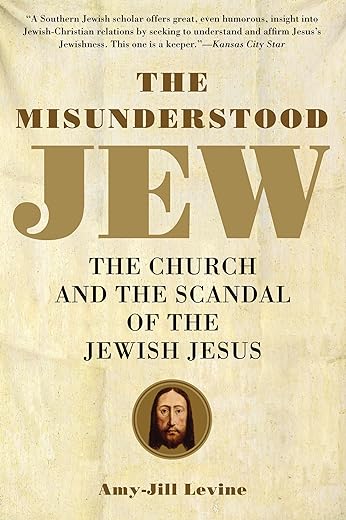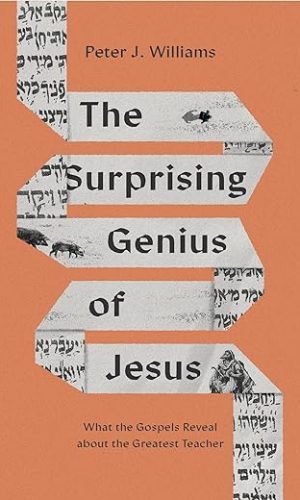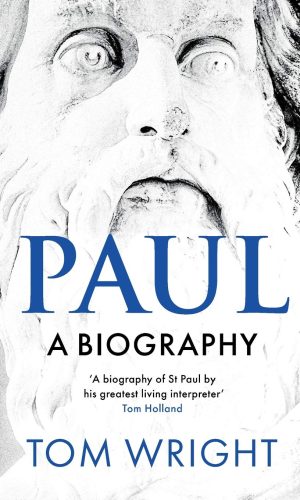The Misunderstood Jew: The Church and the Scandal of the Jewish Jesus
£6.60
In the The Misunderstood Jew, scholar Amy-Jill Levine helps Christians and Jews understand the “Jewishness” of Jesus so that their appreciation of him deepens and a greater interfaith dialogue can take place. Levine’s humor and informed truth-telling provokes honest conversation and debate about how Christians and Jews should understand Jesus, the New Testament, and each other.
Read more
Additional information
| Publisher | HarperOne, Reprint edition (13 Oct. 2009) |
|---|---|
| Language | English |
| File size | 1121 KB |
| Text-to-Speech | Enabled |
| Screen Reader | Supported |
| Enhanced typesetting | Enabled |
| X-Ray | Enabled |
| Word Wise | Enabled |
| Sticky notes | On Kindle Scribe |
| Print length | 258 pages |













by Byletts
Excellent and easy to read. Should contribute to greater understanding between Jews and Christians. Recommend.
by Fred
Fascinating viewpoint and study by a Jew, with a depth of New Testament knowledge. Had not realised how hurtful the language of the Gospels and Pauline Letters could be; or what seeds they may have sown!
by Amazon Customer
The Misunderstood Jew
“The Misunderstood Jew” by Ami-Jill Levine is a rewarding read for both Christians and Jews. “But if their transgression means riches for the world, and their loss means riches for the Gentiles, how much greater riches will their fullness bring!” (Romans 11:12)
We are privileged to live in such exciting times. Whatever the Church gained by moving from its Jewish roots, it lost much more. Today, the Lord is revealing the importance of the Jewish roots to His Church,bringing back the Hebraic context and understanding; and more and more Believers are becoming aware of this. Further, and equally exciting, The Lord is lifting the veil from Jewish eyes so that there is a greater interest, understanding and even turning to Yeshua/Jesus, their Messiah than there has been since he walked and talked in the land of Israel two thousand years ago.
This book is part of the riches that we Gentiles can participate in and enjoy, while at the same time enlightening Jews, giving understanding that Jesus is the Messiah, their Messiah! We can appreciate the revelation that comes by the Holy Spirit through Jewish eyes giving greater understanding of His Word.
Speaking of Jesus of Nazareth Ami-Jill says, “To see and hear him in his historical context enriches the meaning of those all too familiar images and sayings. They become striking again, not just for their spiritual potential, but also for their social engagement. The kingdom of heaven is not, for the Jewish Jesus of Nazareth, a piece of real estate for the single saved soul; it is a communal vision of what could be and what should be. It is a vision of a time when all debts are forgiven, when we stop judging others, when we not only wear our traditions on our sleeve, but also hold them in our hearts and minds and enact them with all our strength. It is the good news that the Torah can be discussed and debated, when the Sabbath is truly honoured and kept holy, when love of enemies replaces the tendency toward striking back. The vision is Jewish, and it is worth keeping as frontlets before our eyes and teaching to our children.” I am glad I purchased a copy of this book, and warmly recommend it to others.
by Jov
Strong in the choice of her words, but a failure in omitting words and NT context.
With a friendly wink she invites the reader in her world of truth by her introduction from where she subsequently puts the life of Jesus in the light of Jewish tradition and interprets the NT in a not so friendly manner as her introduction.
Beside her generalizing attitude towards Christianity she shows her preference for the denial of the spiritual Person in the flesh of Jesus and only shows any knowledge of a historical Jesus. She follows the Bible critics known by the group who are responsible of critical commentaries on the script of the entire Bible.
By omitting parts of the NT, or by using particular translations, she pulls the NT-message out of its spiritual context. On a falls way by transforming assumptions into “truth” she declares e.g. that Paul is the founder of Christianity. This is the so old heard myth within the Jewish community wherefore is no scriptural ground. With this she learns that Paul made Jesus from Jew to gentile, while when one does study one finds back the Shema within the letters of Paul wherein Jesus in the flesh is Jew, but also more than a descendant of Abraham and David.
Amy, as dangerous preachers do, suddenly brings her hypotheses in her story as truth without any argumentation. Her refined way of writing cannot hide her hidden agenda of the denial of the Eternal who came in flesh and with the lack of respect in this; her tendency is not only anti-Christian.
In her commentary on the parable of the Pharisee and the toll keeper she shows full lack of understanding the message. She declares the disparaging attitude of the Pharisee “not wrong” and distorts the inner message of Jesus.
The book shines by the lack of spiritual insight and Amy leaves the role of Ruach Hakodesh out of her treatise. And with this one can understand why Amy is missing the clue. Her treatise is not more than a commentary on history, form and letter. Her background and reference makes her a non independent NT writer and scholar.
Another example is her commentary on Marc 7:19b where she tells her readers that Marc says that Jesus learned that all food is Kosher. Amy with her knowledge of Greek should know better and should not bring around new myths. As scholar she must know that Jesus compared the inner cleanness with the outer and placed the inner cleanness as far above the outer that food does not matter for the inner cleanness. As Jesus told that no jota or title should be lost, Jesus would have confirmed when asked, that the food-laws are required means for man to understand the inner intentions.
Amy does not make a distinction between power-mad Pharisees who don’t preach faithfull believe(emunah) but religious systems – and – Pharisees who seek to live the will of the Almighty. Jesus did made that distinction but Amy in her book seems to finds excuses for the bad Jew. She forgets to mention that the warnings of the Tenach against the bad shepherds are the same as the warnings of Jesus.
It’s funny that the New York Times proclaims that this book fills a gap between inter religious conversation between Jews and Christians. I say: Amy leaves the gap remain where and what it is: the spiritual misunderstanding. She doesn’t mention the Spirit because she can’t. And so this book is nothing more than a repetition of misunderstanding of Jesus and the NT.
It’s a book in line with “How Jesus became a Christian” or “a Kosher Jesus”.
The Jewish professor Pinechas Lapide has left us better books than this about the life and message of Jesus.
by Miras
The book is for someone who wants to understand better the true connection between Judaism and Christianity, written by an extraordinary academic